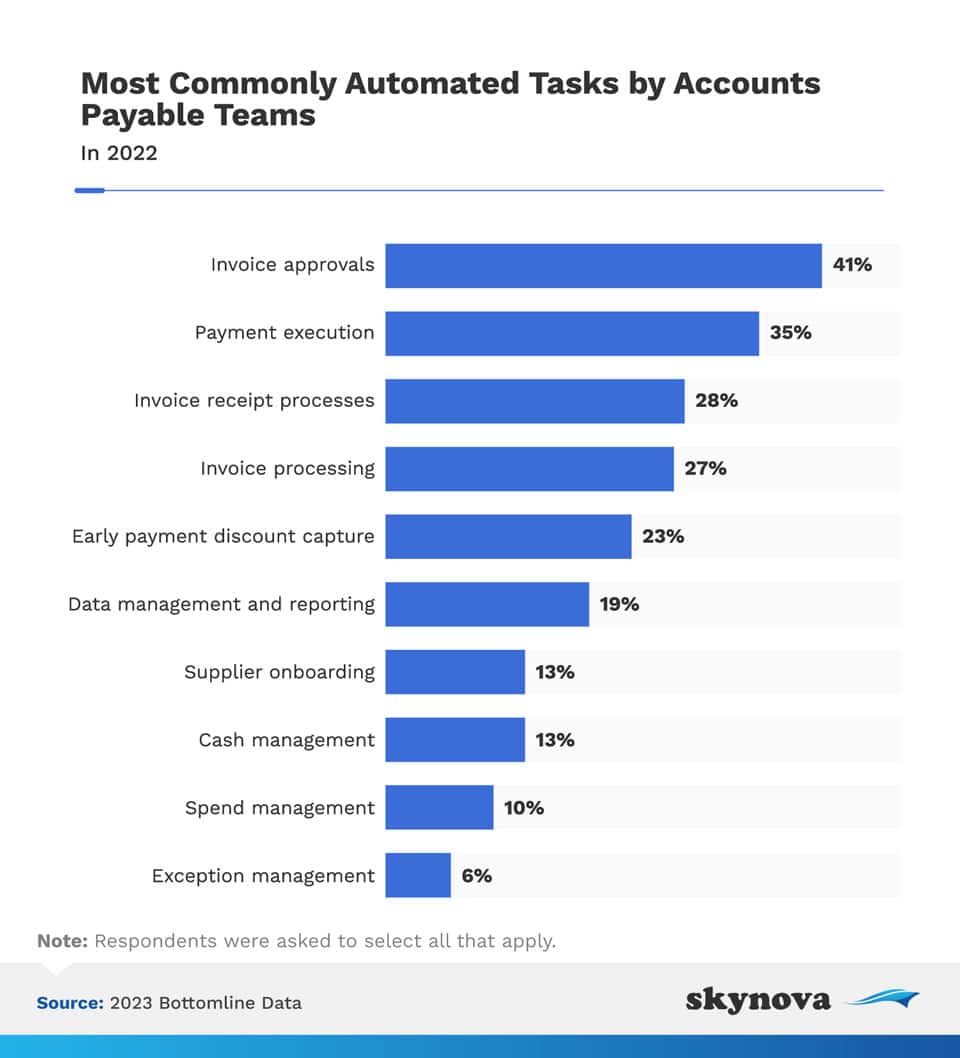A Comprehensive Analysis Uncovers the Future of Invoicing

Invoicing, an indispensable component in any business infrastructure, is witnessing a transformative phase. With trends shifting towards digitization and automation, the invoice management process is evolving. Recent research from Skynova, a free invoice tool provider, delves into the most recent studies and provides a glimpse into the current state of invoicing and its future directions.
A Snapshot of Current Invoicing Practices
Businesses today grapple with enormous amounts of invoices. Almost 48% of all businesses handle up to 500 invoices monthly, and an astonishing 66% report spending more than five days a month processing them.
The technological shift isn’t as fast as one might think. Only 52% of invoices are received electronically, while the rest are still paper based. This traditional method adds layers of complexity, as 37% of businesses also utilize paper invoice receipts.
Interestingly, the research found that 57% of invoice data still demands manual entry, reflecting the human dependency on the system. Additionally, a multifaceted approval process exists in almost half of all businesses, with 49% requiring two to three people for invoice approval.
Despite the rigorous process, 11% of customers never receive their invoices, indicating an underlying inefficiency that needs urgent attention.

Embracing Automation: What the Numbers Say
Automation is poised to revolutionize invoicing, with 71% of people predicting it as the biggest invoicing trend of 2023. Yet only 5% of accounts payable teams have fully embraced automation for handling invoices and payments. However, there’s hope, as 26% of businesses are working on achieving full automation by 2024. Invoice approvals are becoming automated in many companies (41%), but there’s still a long way to go to ensure complete efficiency.
Invoicing Variances Across Business Sizes
The size of the business also plays a significant role in shaping invoicing practices.
- Small to medium-sized enterprises (SMEs) are heavily reliant on paper invoice receipts (48%) and manual entry (86%).
- Enterprises are leaning towards automation, with 65% having automated invoice data entry.
- Mid-market businesses lie in between, with a diverse mixture of practices.
The varying approval times and processes also differ across the business size spectrum.
Challenges and Insights in Accounts Payable
Accounts payable specialists, numbering over 378,750 in the United States, face several challenges. Women dominate this sector, making up 79% of the workforce.
The average age of an accounts payable associate is 51, and the major challenges include slow invoice approvals (47%) and exceptions to invoicing standards (45%). Stress and damaging supplier relationships are the main consequences of slow invoicing.
There’s a strong desire to improve reporting and data analytics (48%) and a promising shift towards electronic payments (56%) and e-invoicing (one-third planning to adopt within 12-24 months).
Understanding Accounts Receivable: A U.S. Perspective
With over 515,368 accounts receivable specialists in the U.S., Skynova’s research finds challenges include automation and late payment management.
- 82% of specialists are women.
- The average age is 45.
- Teams in real estate spend over 7 hours a week on tasks.
The Struggle with Late Payments
The study found late payment of invoices is an alarming issue, with 39% of invoices paid late in the U.S. Incorrect invoices account for 61% of these late payments, and 87% of businesses receive payments after the due date. Companies with more than 500 employees face this challenge the most, with 28% of payments being more than 30 days late.
Streamlining the Invoicing Process
The myriad of statistics and insights shared above paints a comprehensive picture of the current invoicing landscape. Despite technological advancements, there is still a strong reliance on manual processes, leading to inefficiencies.
The promise of digitization and automation holds the key to streamlining the invoicing process. The future of invoicing lies in embracing technology and adapting to automation, reducing errors and saving both time and resources. Businesses must act promptly to adopt new technologies or risk being left behind in an ever-evolving financial landscape. The time for change is now, and the tools for transformation are within reach.
Have you read?
The 4 Most Influential Female CEOs In The Telecom Industry, 2023.
The 50 Richest People in the Philippines, 2023 List.
The Richest Billionaires in Each Country, 2023.
These Are the most overpaid CEOs among S&P 500 companies, 2023.
These Are the highest-paid CEOs among S&P 500 companies, 2023v.
Highest-paid CEOs among Russell 3000 companies, 2023.
Bring the best of the CEOWORLD magazine's global journalism to audiences in the United States and around the world. - Add CEOWORLD magazine to your Google News feed.
Follow CEOWORLD magazine headlines on: Google News, LinkedIn, Twitter, and Facebook.
Copyright 2025 The CEOWORLD magazine. All rights reserved. This material (and any extract from it) must not be copied, redistributed or placed on any website, without CEOWORLD magazine' prior written consent. For media queries, please contact: info@ceoworld.biz








